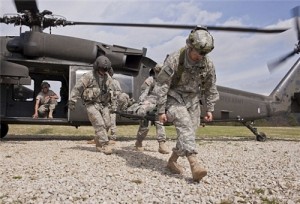 NEW DELHI: India is actively seeking Iran's cooperation in dealing with the situation in Afghanistan, where the Taliban have been emboldened by the growing rift between the US and President Hamid Karzai, not deterred by the recent hiccups in ties with the energy rich country. Responding to�India's sentiment,�the moderate Iranian President,�Hassan Rouhani, will soon be sending the secretary of Iran'sSupreme National Security Council, Ali Shamkhani, to Delhi for talks on the issue.
NEW DELHI: India is actively seeking Iran's cooperation in dealing with the situation in Afghanistan, where the Taliban have been emboldened by the growing rift between the US and President Hamid Karzai, not deterred by the recent hiccups in ties with the energy rich country. Responding to�India's sentiment,�the moderate Iranian President,�Hassan Rouhani, will soon be sending the secretary of Iran'sSupreme National Security Council, Ali Shamkhani, to Delhi for talks on the issue.National security advisor�Shivshankar Menonmet Iranian foreign minister�Javad Zarif�on Saturday to discuss the issue of regional stability in light of recent developments in war-ravaged Afghanistan.�Menon�also emphasised on the importance of the deep-sea Chabahar port -- which will see India investing $100 million -- and the accompanying north-south transit corridor for both the countries.
Chabahar is of immense strategic significance to India as the project will allow it crucial and cost-effective access to both Afghanistan and Central Asia. Officials said the meeting with�Zarif�took place on the sidelines of the Munich Security Conference on Global Power and Regional Stability. A highly respected diplomat internationally, Zarif spoke about the rich cultural and historical links between the two countries and how President Rouhani believed that the two countries could together play a crucial role in regional peace.
Zarif also told Menon that Shamkhani will soon visit India to carry forward these discussions. Shamkhani is Menon's counterpart. He had also served as defence minister and chief of the Revolutionary Guards navy in the past. The Revolutionary Guards was at the centre of a row between the two countries last year after it, according to India, illegally detained an Indian ship carrying crude from Iraq. Foreign minister Salman Khurshid took up the issue with President Rouhani in a meeting in Bishkek later. Rouhani, however, assured India that there was no political motive behind the detention.
India has also been looking to further intensify its engagements with Iran since the November 2013 interim nuclear agreement between Tehran and the P5 +1 countries. The prospect of an easing of sanctions imposed by the west though is yet to show in Indian crude imports from Iran which went down by 40% last year.
Speaking later at the Munich conference, Menon said India's primary interest is to create an enabling external environment for the transformation of the country. "That requires a peaceful periphery and a stable international environment which is supportive of India's security, growth and development. In other words, we seek a reduction in regional tensions, wherever they may be, an open and democratised international order, and more effective and representative global institutions,'' he said.
By The Times Of India
The Iran Project is not responsible for the content of quoted articles










